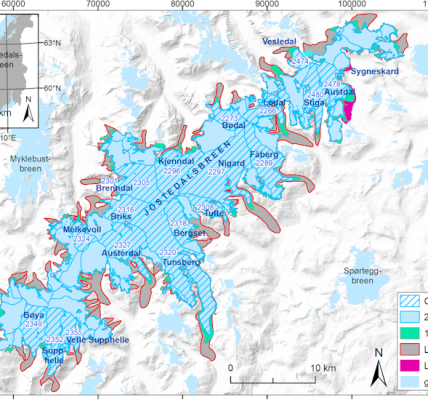Love in the age of WhatsApp – a philosopher explains how technology reduces the power of a relationship
A sense of distance has always been part of romantic love. The experience of wanting to be with another person often requires separation, if only in the form of days apart for work and travel. Matters become more complicated, however, when that distance is mediated by technology – by dating app swipes, messaging on WhatsApp and FaceTime.
For myself, as a philosopher of love, there is no good reason to say that loving relationships of a mostly remote nature cannot endure – or that physical separation inevitably and eventually destroys love. Much of society’s collective understanding of love suggests this is simply not true. Longing for another human can continue at a distance, even if we want that distance to end.
That said, one of the most familiar uncertainties about romantic love is the fear that it is a drama played out within the self, and that the other person does not care in the same way. When technology mediates contact, this can strengthen familiar forms of scepticism about love – for example, about whether or not the other person is really who they seem to be. We want sincerity and depth of feeling. Not just a pleasing response.
Dating today can feel like a mix of endless swipes, red flags and shifting expectations. From decoding mixed signals to balancing independence with intimacy, relationships in your 20s and 30s come with unique challenges. Love IRL is the latest series from Quarter Life that explores it all.
These research-backed articles break down the complexities of modern love to help you build meaningful connections, no matter your relationship status.
If I am apart from my wife Suzanne for any length of time, I want our conversations over FaceTime and WhatsApp to be quite different from the interactions that might be possible with an AI girlfriend. I still want a real, tangible person at the other end of the technology, with whom I could share an embrace if only we were together.
In other words, our technologically mediated interactions do not stand alone – they are part of a life which is largely spent together. Location matters, and this is one of the aspects of love that accounts of the philosophy of love are generally bad at understanding (with the possible exception of some of the work on love by Japanese philosophers such as Nishida and Watsuji).
We expect our relationships to feel different in real life than they do digitally.
Anna Selle/Unsplash
I do not mention shared places at all in my own book on love. Yet they are central to being a couple. People do not typically just want to meet in some random location. We want to be together in a determinate series of places, including our homes. Too much technological mediation can undermine this sense of being somewhere together physically. Being together online is not the same.
Love and its limits
My thought then is not that technologically mediated love cannot endure, but that it becomes something second-rate if there is too much mediation and not enough actual being together in a shared physical place.
This is an unpopular thought for two reasons. First, it involves saying that Plato and a long line of western philosophers have been right: some kinds of love really are better than others. “Better” in the simple and obvious sense that they are geared towards meeting our needs, smoothing out the bad parts of life, and making sure there are also enough high points.
Scientists can see this at a neurophysiological level. Some kinds of love activate the brain’s feel-good attachment and reward networks more than others. Romantic love and parental love activate more of these networks than love for pets, though the latter does trigger a genuine response.
Second, it involves saying that love is not infinitely plastic – it cannot be just anything we want it to be. Romantic love has a social history reaching back at least a couple of thousand years and perhaps a good deal longer. Our few surviving remnants of prehistoric tales deal with loss and longing, played out across the night sky.
Yet love has an even larger history which is shared with other social animals. It is a mark of our creatureliness, our physicality as a special kind of animal. We are not ghosts flitting across the glaciers, embracing only in cyberspace.
The fact we are human sets limits on the kinds of love that can work well.
Drazen Zigic/shutterstock
Our heavily constructed romantic ideas about what we can mean to one another still depend upon a solid evolutionary foundation of wanting to be somewhere familiar with a special someone – and grieving when this is no longer possible. Dogs do it, chimps do it, and so do we.
And so, if anyone wants to say that a largely remote and mediated relationship can be just as good as being together in shared places, or that a romantic relationship with a holographic anime character can be just as good as a romantic relationship with a real person, then my response is “not for beings like us”.
The fact we are human sets limits to the kinds of love that can work well. As I explore in my research, love is not a democracy. All loves are not equal. There are limits to the ways in which technologies can mediate (or even take the place of) romantic relationships of the most fulfilling sorts.
None of which will stop Suzanne from texting me, or me texting Suzanne, with a suitable range of emojis. And none of which will stop us from video-meeting at every opportunity when we are separated by an ocean or two.
But as we do these things, the promise is always there of a return to the places where we exist physically together. Using technologies when separated by great distances is not a substitute for sharing these places. It is a way of saying that we are coming home.
This article features references to books that have been included for editorial reasons, and may contain links to bookshop.org. If you click on one of the links and go on to buy something from bookshop.org The Conversation UK may earn a commission.
Get your news from actual experts, straight to your inbox. Sign up to our daily newsletter to receive all The Conversation UK’s latest coverage of news and research, from politics and business to the arts and sciences.
Tony Milligan does not work for, consult, own shares in or receive funding from any company or organisation that would benefit from this article, and has disclosed no relevant affiliations beyond their academic appointment.




